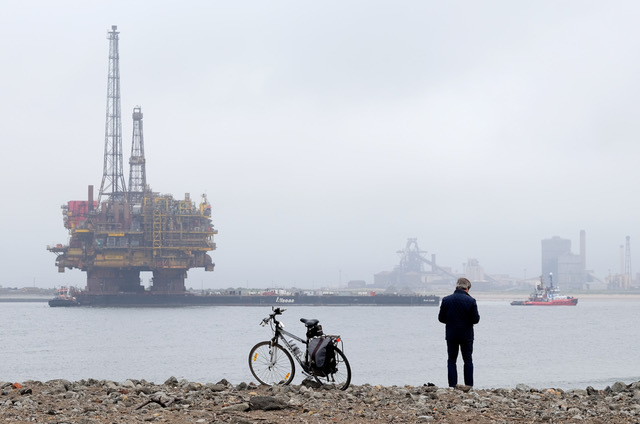
Oil and gas advisors DNV GL have warned of a knowledge loss “time bomb” in the sector.
Michael Kelleher, a principal advisor at the firm, has been speaking in Aberdeen, discussing the implications for decommissioning.
He warned that the oil and gas industry, like others, has been left “mean and lean” with a heavy reliance on fewer people.
With the “baby boomer” generation retiring, he said it can leave the sector open to a loss of knowledge.
He said: “My early research in the 1980s was looking at knowledge transfer because of a shortage of young people coming into the manufacturing industry.
“Now what we see is a different demographic time bomb.
“You’ve all heard of the baby boomer generation, that’s precisely where all of our experts lie.
“It’s the first generation in the world that’s trying to retire earlier than they would, and it’s twice the size of the generation that follows.
“I don’t know of any organisation anywhere in the world that’s not going to suffer from the challenge of knowledge loss in the next five to ten years.”
Mr Kelleher was addressing the Decom Offshore conference.
He said there are lessons to be learned from nuclear decommissioning – which can take more than 100 years to carry out – in retaining knowledge.
He said: “I worked in this sector for 11 years, helping to plan the knowledge management strategy and help develop tools and techniques for retaining knowledge in this industry.
“The latest I’ve heard, decommissioning will finish at Sellafield, as an example, in the year 2125, so there’s over 100 years of decommissioning in nuclear.
“The Magnox reactors around the country are closed, and they will be reopened in 80 years’ time and only then will the decommissioning start.
“That gives you the scale and the challenges faced of retaining knowledge for the next century.”
Like the oil and gas sector, nuclear involves various decommissioning projects, with the aim of sharing knowledge across various projects and organisations.
Mr Kelleher said having appropriate management systems, as well as databases and intranets, can mitigate the risk.
He added: “Ultimately we want to make sure it is shared across the organisation, maybe scrutinising if there should be a change in the management system based on those lessons.
“We also try to make sure that the knowledge is stored somewhere that people can find it easily. We look at internal sites for clients.
“Finally, it’s about taking a look at your management system.
“If we want to retain knowledge and reduce the impact of lost knowledge we need to make sure that we have effective processes and procedures to make sure knowledge risks are addressed.
“Knowledge risks need to be treated and managed like all other risks.
“If you don’t do this, you will incur the costs of ignorance.”
Recommended for you

